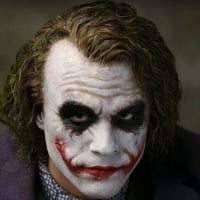Welcome to the Hardcore Husky Forums. Folks who are well-known in Cyberland and not that dumb.
Feeney and Littleton replacements?

Passion
Member Posts: 4,622
Accepting that few people outside the program get to actually observe practice, does anyone know how any of these guys have performed during their redshirt years:
- Potoa'e
- DJ Beavers (great name, by the way)
- Manu
- Justiss Warren
Let me know where to send my $10.95.
- Potoa'e
- DJ Beavers (great name, by the way)
- Manu
- Justiss Warren
Let me know where to send my $10.95.
Comments
-
I think Bevis Bartlett takes the open LB spot. Potatoe and Warren battle it out for buck unless Kongbo comes here (please Allah).
-
Potatoe Buck, Justice takes Littleton's spotbananasnblondes said:I think Bevis Bartlett takes the open LB spot. Potatoe and Warren battle it out for buck unless Kongbo comes here (please Allah).
-
Don't sleep on the Mique Juarez being able to step in and play Day 1
-
ucla will lend him to us?Tequilla said:Don't sleep on the Mique Juarez being able to step in and play Day 1
-
I forget what coach but one of them mention DJ Beavers as a player who has "flashed" during bowl practices. He was first time all state in CA so the guy clearly has some talent.
-
Can we please refer to DJ Beavers or Brandon Beaver as Eaton Beavers or Eaton Beaver?
-
If one is black and one is white they can be Wheaver and Bleaver ala the Hudson brothers.bananasnblondes said:Can we please refer to DJ Beavers or Brandon Beaver as Eaton Beavers or Eaton Beaver?
-
Sean Constantine will replace their production by himself
-
Tevis disappeared the second half of the season.bananasnblondes said:I think Bevis Bartlett takes the open LB spot. Potatoe and Warren battle it out for buck unless Kongbo comes here (please Allah).
-
I forget what coach but one of them mention DJ Beavers as a player who has "flashed" during bowl practices. He was first time all state in CA so the guy clearly has some talent.
Ok then, problem solved






